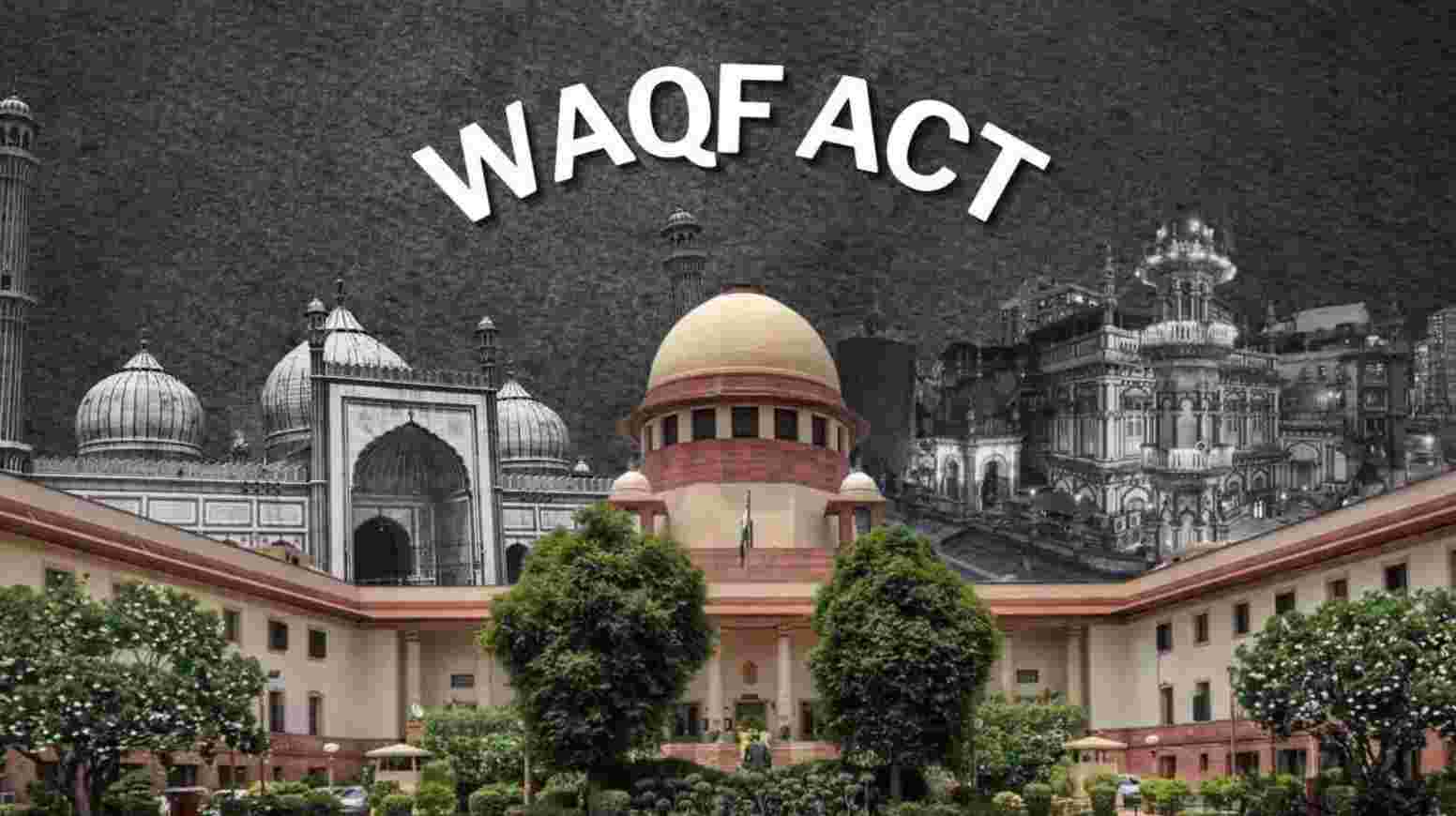The Supreme Court has decided not to suspend the entire Waqf (Amendment) Act, 2025, but it has put on hold three specific parts of the law. These parts are being questioned in court over whether they are fair or constitutional.
What Did the Court Do?
- The Court refused to pause the whole Act. Most of its rules continue to apply.
- However, it stayed (temporarily suspended) certain portions that raise serious legal concerns.
Provisions That Have Been Stayed
Here are the three main parts of the law the Court has put on hold:
- “5‑Year Practicing Islam” Rule (Section 3(r))
This clause required someone to be a practising Muslim for five years before dedicating property as a waqf. The Court said this must be paused until state governments make rules for verifying that claim — otherwise it could lead to arbitrary decisions. - Powers of the Collector to Decide Waqf Property Status (Section 3C & Related Clauses)
The law allows the Collector to declare whether a property is waqf or government property. The Court held that letting a Collector decide rights of private individuals (without proper checks) could violate separation of powers, hence this power is stayed for now. - Limits on Non‑Muslim Membership in Waqf Boards and Councils
The Amendment allows non‑Muslims to be part of waqf boards. The Court has put limits on how many non‑Muslims can be members (e.g. state waqf boards) until the matter is resolved.
Background: What Is the Waqf Amendment Act, 2025?
- The Act amends the Waqf Act of 1995, which is the law governing waqf properties—properties dedicated for religious or charitable use under Islamic law.
- The Amendment was passed by Parliament in April 2025 (Lok Sabha: 3 April; Rajya Sabha: 4 April), then received President’s assent and came into force shortly after.
- The changes were introduced to improve regulation of waqf properties, to bring in transparency, allow better oversight, ensure non‑Muslim members in boards, audit accountability, prevent misuse or encroachment on waqf lands.
Why This Matters
- These provisions affect religious, property, and minority rights, so stays on these parts have big implications.
- The “5‑year practising Islam” rule, especially, was criticized for potentially being discriminatory or arbitrary.
- The Collector’s power to decide property status could affect many people and waqf claims.
- Limits on non‑Muslim membership affect governance of waqf boards.



